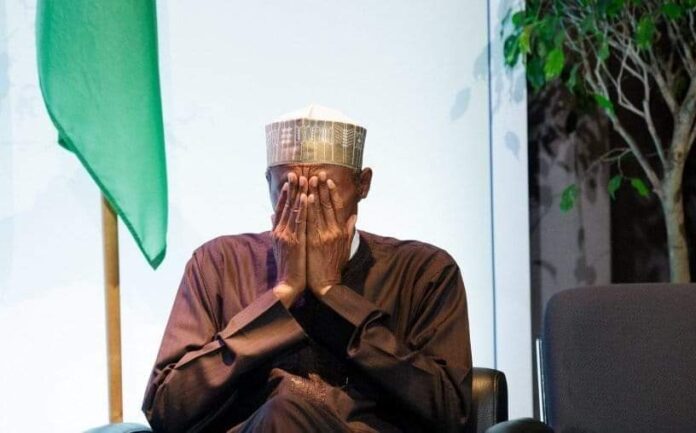©Eugene Upah
A 14-year old sprint sensation has been discovered in Jamaica. Her name is Brianna Lyston. Predictions are that her future exploits may dwarf that of Usain Bolt and Shelyanne Fraser-Pryce. She should be dominating the youth and junior World Athletics Championships for the next four to six years. Thereafter, she and others in her age category at next year’s Jamaican Boys & Girls Championships will take over elite sprinting in the world for the next ten years, barring any career terminating injuries. That is the way the Jamaican Athletics program is structured to operate.
Athletics is (now) part of the Jamaican culture and tradition. This is why they have the best sports development programs in the world. Great athletes must be produced on a continuous basis to move up the age group ladder and (eventually) replace the ageing elites. Jamaica is continuously fine-tuning and improving their program and at the rate they are going, they will continue to dominate the short and long sprints around the world for very many years to come.
In contrast, 14 year old Austine Bekeh from Cross River State represented Nigeria at the All Africa Youth Games in Brazzaville, Congo in 2015. Upon return in November that year Austine was dropped by the administrators at the national level. At the time, Austine was best in the 4 x 400 meters junior athletics category in Nigeria.
Nkiruka Iroha, another young athlete who represented Cross River at the National Schools Sports Festival was 11 years old when she ran the best time in her category in 2014. At the time she ran the best time in the 800m in Africa. Nkiru would have been to Nigeria what Lyston is to Jamaica.
How can a country of over 200 million people that won no medals at the 2012 London Olympic Games, one token bronze medal in Soccer at the 2016 Olympic Games and no hope of any medal in future Olympic Games, exempt the very young talents producing results? To ensure sustainability, regular discovery of great athletes (in line with the Jamaican model), the Nigerian athletics program & sports system must be overhauled with professionals managing sports at all levels.
For the Nigerian sports industry to move forward, Soccer, Athletics, Swimming, Weightlifting, Taekwondo, Karate, Boxing, Chess and the 34 other sports under the Nigerian sports curriculum must undergo a reform.
According to Howard Aris, former President of the Jamaican Athletics Federation (JAF), Jamaica is where it is today because they built on and improved upon the structures left by the British colonial government.
University of Southern California and Jamaican Olympic medalist, Don Quarrie and other successful Jamaican athletes before and after him in the diaspora returned home to join hands in planning and implementing long term sports development models. They are passionate about their country and sports. Jamaica is now a household name around the world.
The primary motive for this success is love of country and the intense desire of the athletes to dominate the world. To achieve this, they approach sports like business from a young age; work hard, make sacrifices where necessary at all levels and stay focused on their goal. Through it all, Jamaica has imbibed the unstoppable spirit in this endeavor and nothing can stand in their way any longer.
Rather than take resources from the system producing these athletes, everyone, including parents, give of their time and money to organize and officiate small local competitions, encourage the young athletes and support them to achieve their individual and collective goals.
We destroyed all the structures for sports development in our school system that were left by the British. Even the National Schools Sports Festival that used to be a scouting ground today no longer exists. Existing traditions and history vanished when major sports competitions like the Grier Cup and Hussey Shield died.
In Nigeria, sports development is considered an opportunity for administrators to get themselves elected into world sports bodies, become powerful, entrench themselves in the system and turn national sports federations into political associations.
Steps must be taken to quickly reverse the situation because it is getting worse and the international disgrace of returning home from major world competitions without a medal is taking its toll on our psyche. Well tested and successfully implemented plans exist that can turn our fortunes in sports around and set Nigeria on the path of sustainable podium performances at the world and Olympic Games in several sports within 3 to 5 years.
The diligent implementation of these athlete centered plans, mixed with genuine patriotic fervor, is the solution the Nigerian sports have been waiting for. Afterall, the Jamaicans & Americans and all of the best athletes in the world who are of African descent are from the same genetic stock which has its origin in our shores. Sports can only succeed with partnership and close collaboration between government, private sector and wealthy Nigerian patriots. With the benevolence of one or some of Nigerian patriots, honor and glory can accrue to the nation through the participation of our restive youths in competitive sports at home and around the world.
The total population of Jamaica is about 3 million and they won eleven medals at the 2016 Rio Olympic Games. In contrast, Nigeria won one bronze medal in Rio. Population figures indicate that 65.71 percent or 124.5 million Nigerians are less than 29 years old. This is the catchment age bracket for fruitfully engaging the youths in this vital national service.
©Eugene Upah writes from Calabar








